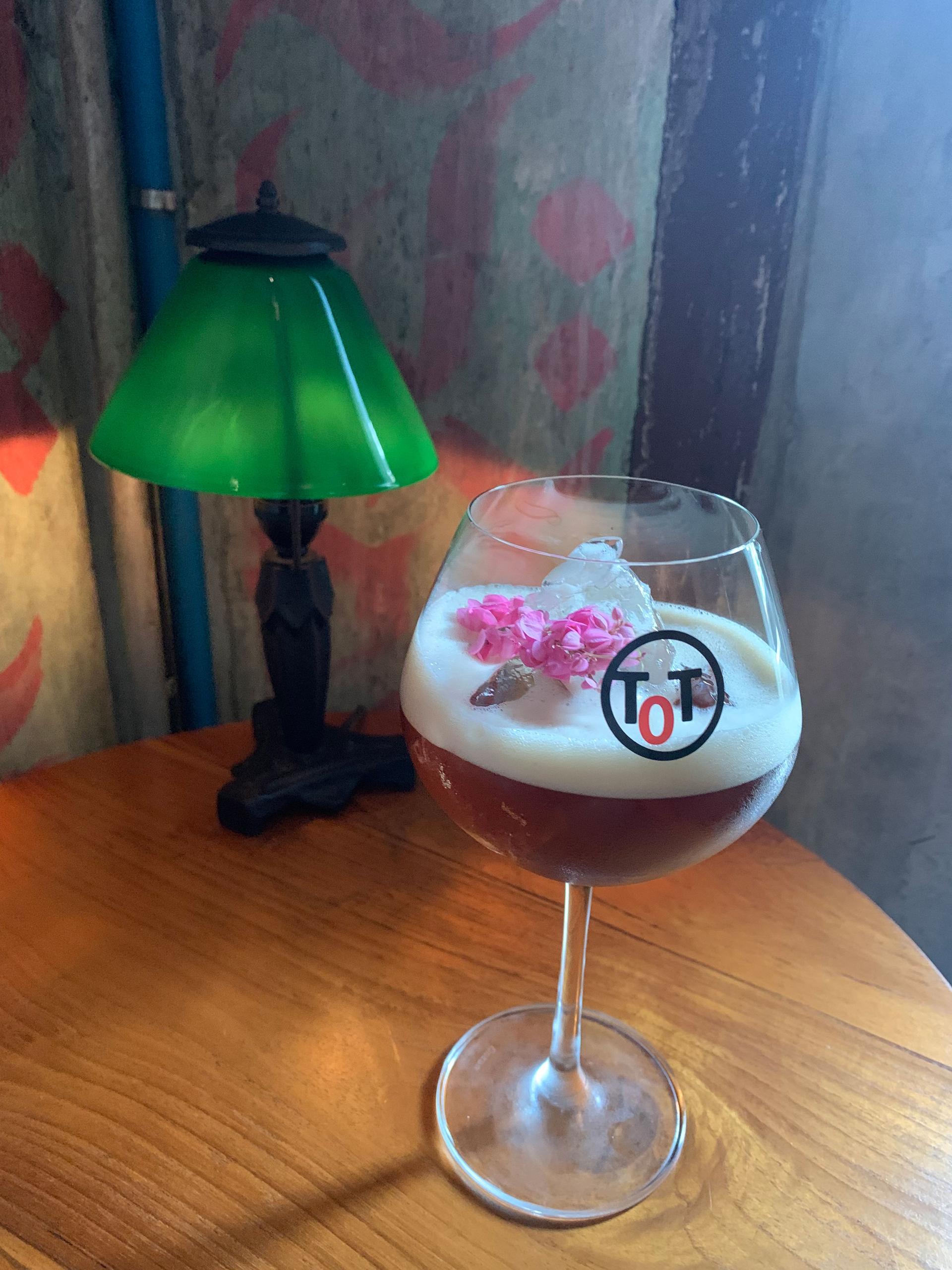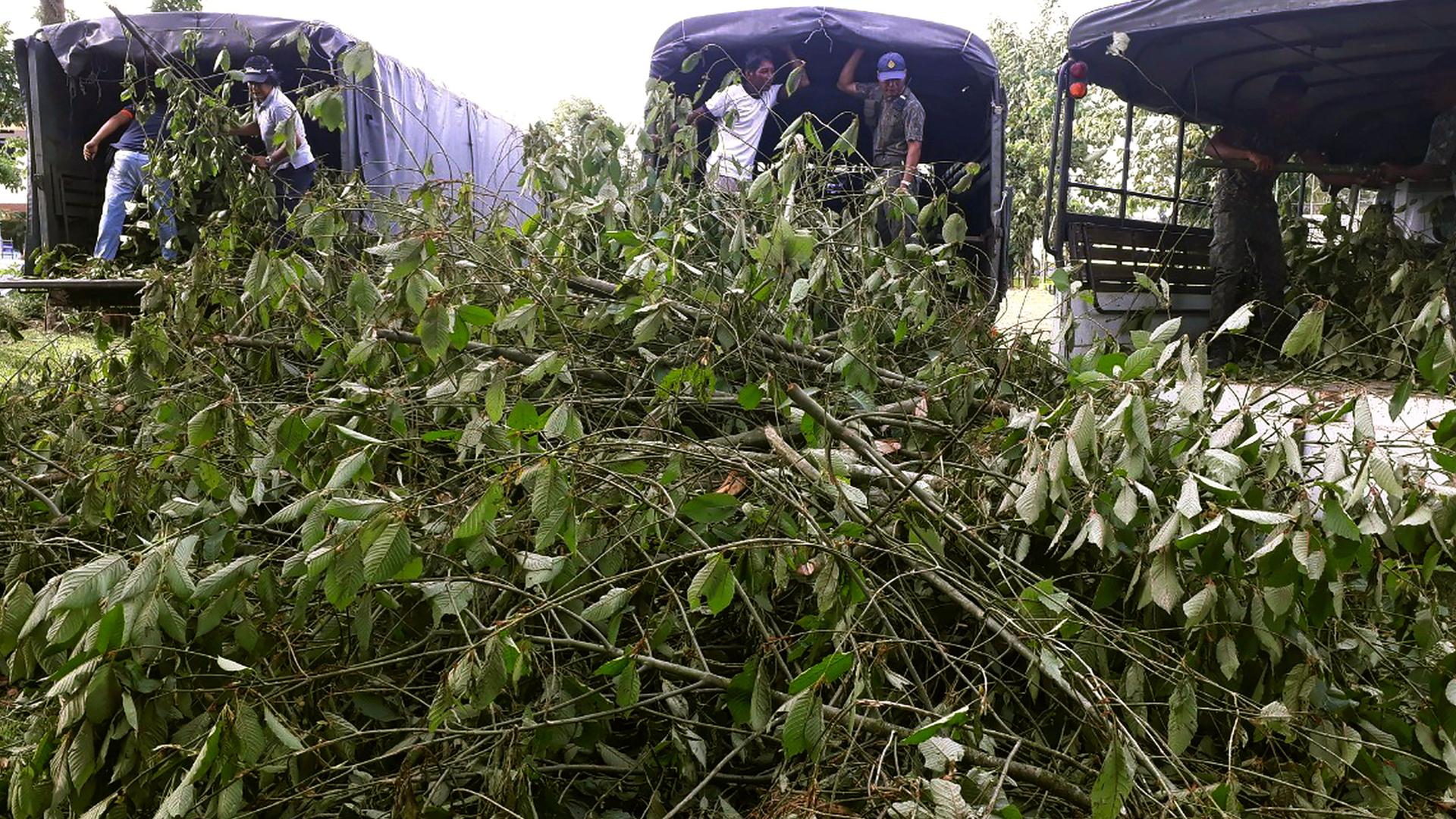Chew a kratom leaf and you’ll feel an espresso-like buzz. Munch three or four and you may catch a head rush that some describe as euphoric.
Until recently, nibbling any amount of kratom in Thailand was punishable by a stint in jail — and selling more than 10 kilos could bring on years in prison. But as of late August, the leaf is fully legalized, with vendors selling it alongside everyday veggies at outdoor markets.
Related: Amid narcotics reform, Thai cooks replace MSG with cannabis
The mild narcotic is still finding its niche in Thailand’s commercial landscape.
Niks Anuman-Rajadhon, a mixologist and bar owner in Bangkok, is at the vanguard of reinventing kratom’s image.
“Kratom has been labeled as a poor man’s drug. … During tests or exams, we’d have kratom from time to time to help us concentrate.”

“Kratom has been labeled as a poor man’s drug,” Niks said. To most, the leaf evokes the image of a hard-laboring farmer in Thailand’s sweltering far south, chewing a few leaves to make the day go easier. Niks first got his hands on kratom during his student days. “During tests or exams,” he said, “we’d have kratom from time to time to help us concentrate.”
Now he is hoping the drug can keep his business alive. For much of the pandemic era, bars have been shut by government decree and even restaurants have been forbidden from selling alcohol. The virus has eviscerated Thailand’s food-and-beverage sector.
But then came the legalization of kratom, which caught many by surprise. Kratom-related convictions have been wiped from the criminal records of more than 10,000 Thais; another 1,000 or so were freed from prison.
Sensing opportunity, Niks has invented kratom-infused cocktails. Instead of gin and tonics, his award-winning bar Teens of Thailand makes kratom drinks with mango foam, garlic brine, coconut syrup and other ingredients. His mixology team has experimented with distilling kratom extract through a variety of methods, one involving a sous vide machine.
Niks said chewing on a leaf “OG-style” lends a taste that is “very green, like a chlorophyll flavor, and quite bitter.” It also numbs the gums. “But if you mix it right, it’s actually quite pleasant.”
Since the 1980s, Thailand has been the United States’ top ally in Asia in the war on drugs. But in recent years, its government, despite a right-wing bent, has started to veer in its own direction.
Methamphetamine, the most popular illegal drug, will not be legalized anytime soon. But milder drugs, such as cannabis or kratom, both indigenous to Asia, are getting a second look. Cannabis oil is now readily prescribed from traditional medicine centers for ailments ranging from cancer to insomnia (though cannabis buds remain illegal.)
Kratom leaves are far less regulated — as legal as celery — though Thai authorities have yet to allow the mass production of kratom extracts.
Extracts (finely ground kratom leaves) do have a niche consumer base in the US, where kratom is legal in all but six states. Having first slipped under the radar as a health supplement, kratom is loosely regulated in the US.
Kratom’s popularity in the US has coincided with the onset of the opioid crisis in the 2010s. This is no coincidence. Some Americans addicted to opioids — especially high-potency fentanyl — have discovered that using kratom can help them wean off.
Kratom can be addictive, as well. For heavy users, the withdrawal is quite nasty. Ingesting extreme amounts can reportedly cause an overdose. But kratom fatalities are extremely rare; a Center for Disease Control and Prevention (CDC) study of more than 27,000 overdose deaths found only seven in which a person reportedly died from kratom use alone — and even in those cases, “the presence of additional substances cannot be ruled out.”
Related: Minerals, drugs and China: How the Taliban might finance their new Afghan government
Still, the threat of a US federal ban looms over kratom. There were attempts to ban it coming from officialdom — namely the Federal Drug Administration and the Drug Enforcement Agency — in both the Barack Obama and the Donald Trump presidencies. More recently, congressional lawmakers from both parties have urged the Joe Biden administration to keep kratom legal.
Thailand’s legalization of kratom stands to save $50 million — the cost of arresting and confining offenders. Thai entrepreneurs are already making money off kratom home delivery. Some upscale supermarkets sell the leaves in their produce sections. In rural markets, the equivalent of $8 buys half a kilo or many dozens of leaves.
The sensation of kratom is a bit hard to describe. In mild doses, it brings on a feeling of serenity — though the effect is subtle. “It kind of erases a lot of noise in the background,” Niks said. “It makes you feel more clear.”
Everything in moderation, he said. Even after Thailand allows bars to serve alcohol — possibly in December — Niks intends to keep kratom-infused cocktails on the menu.
